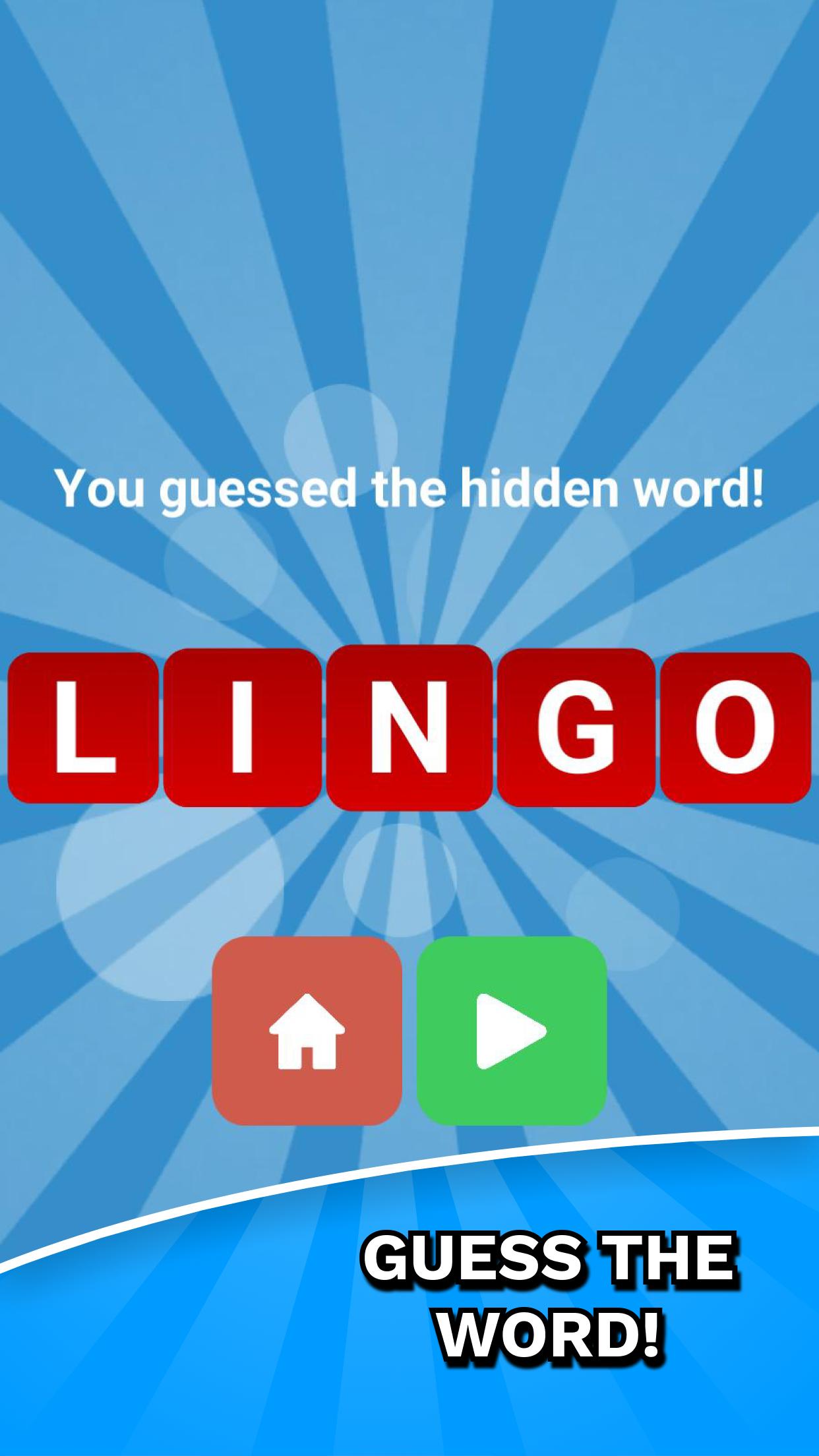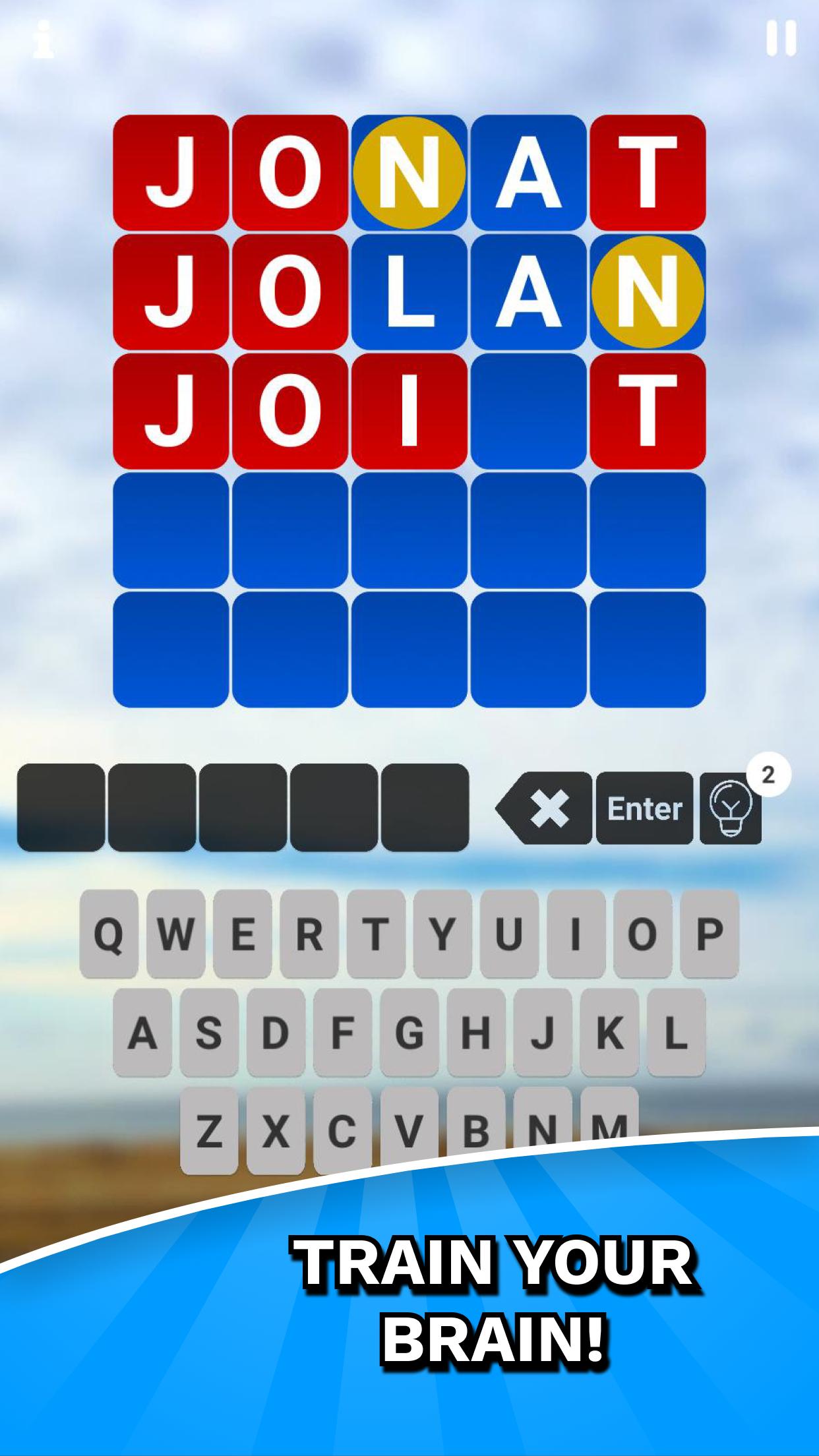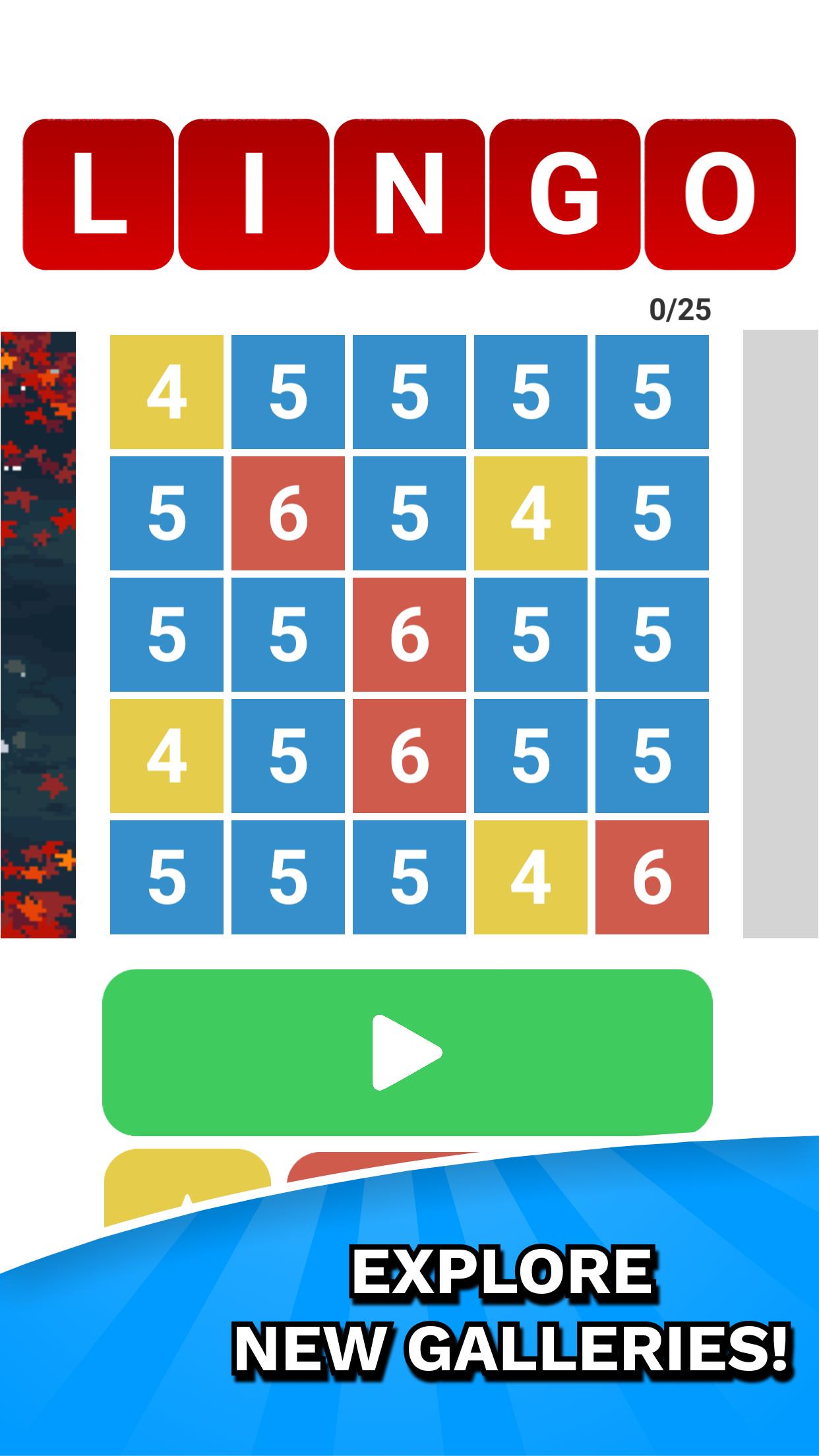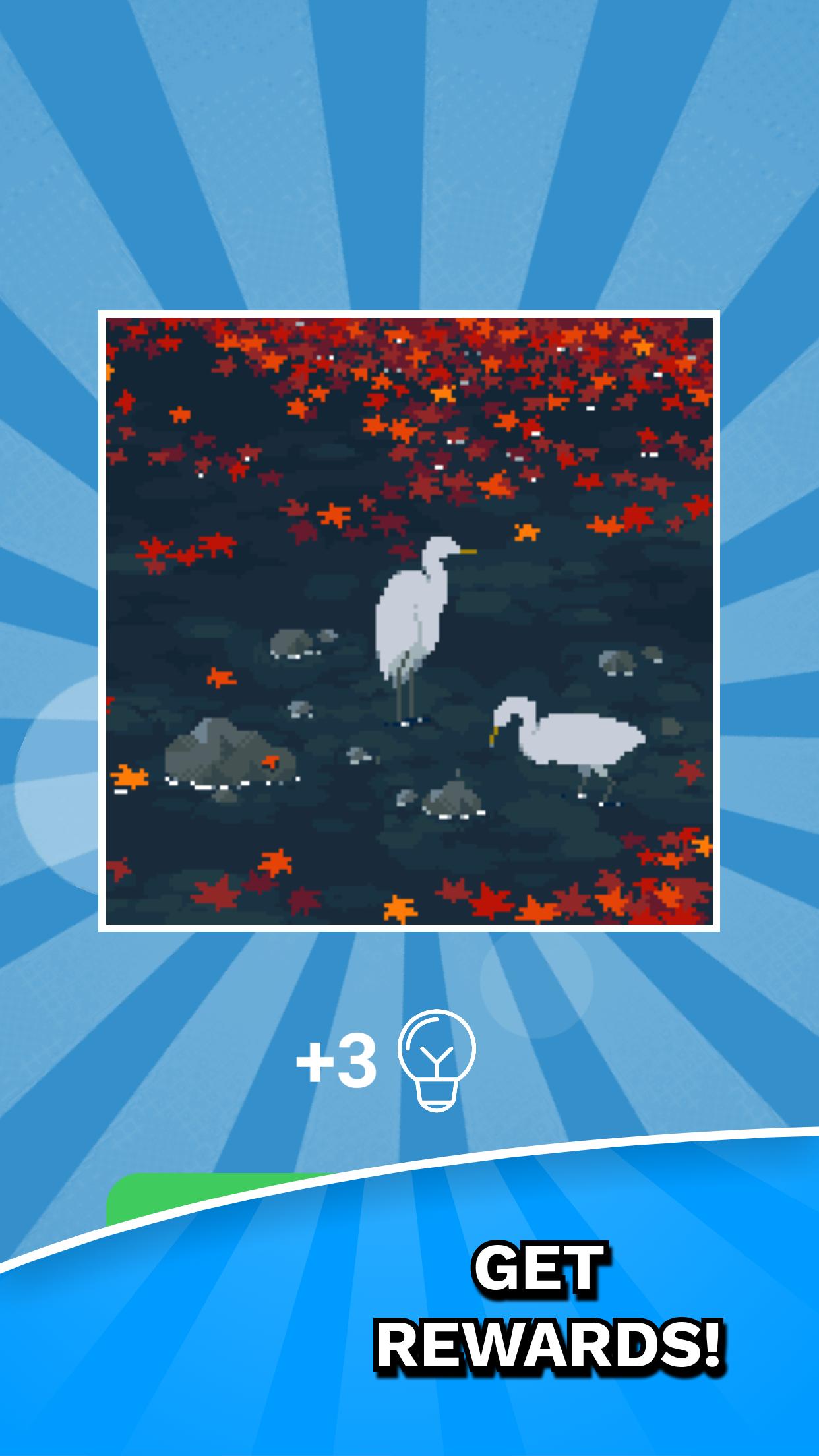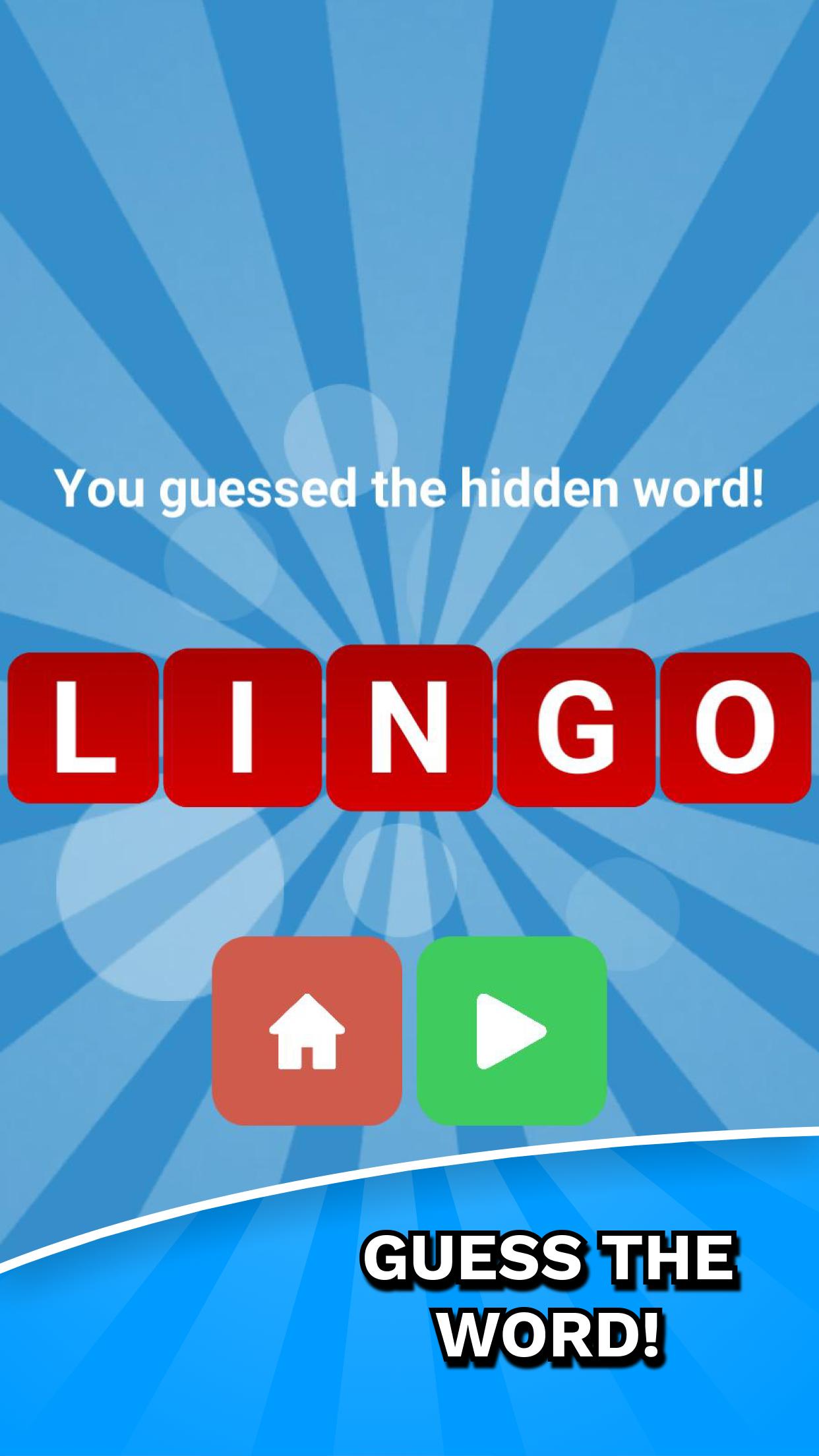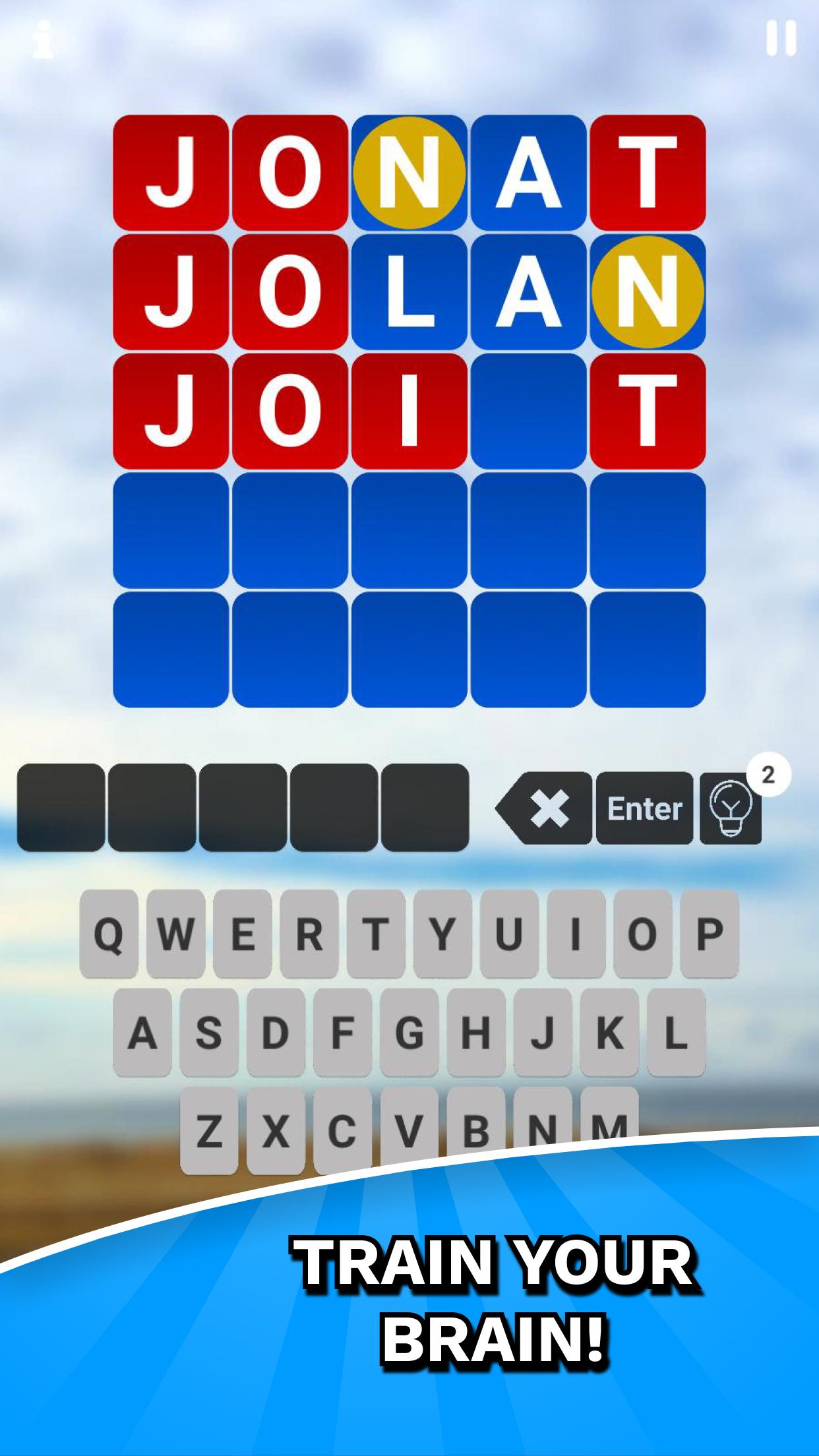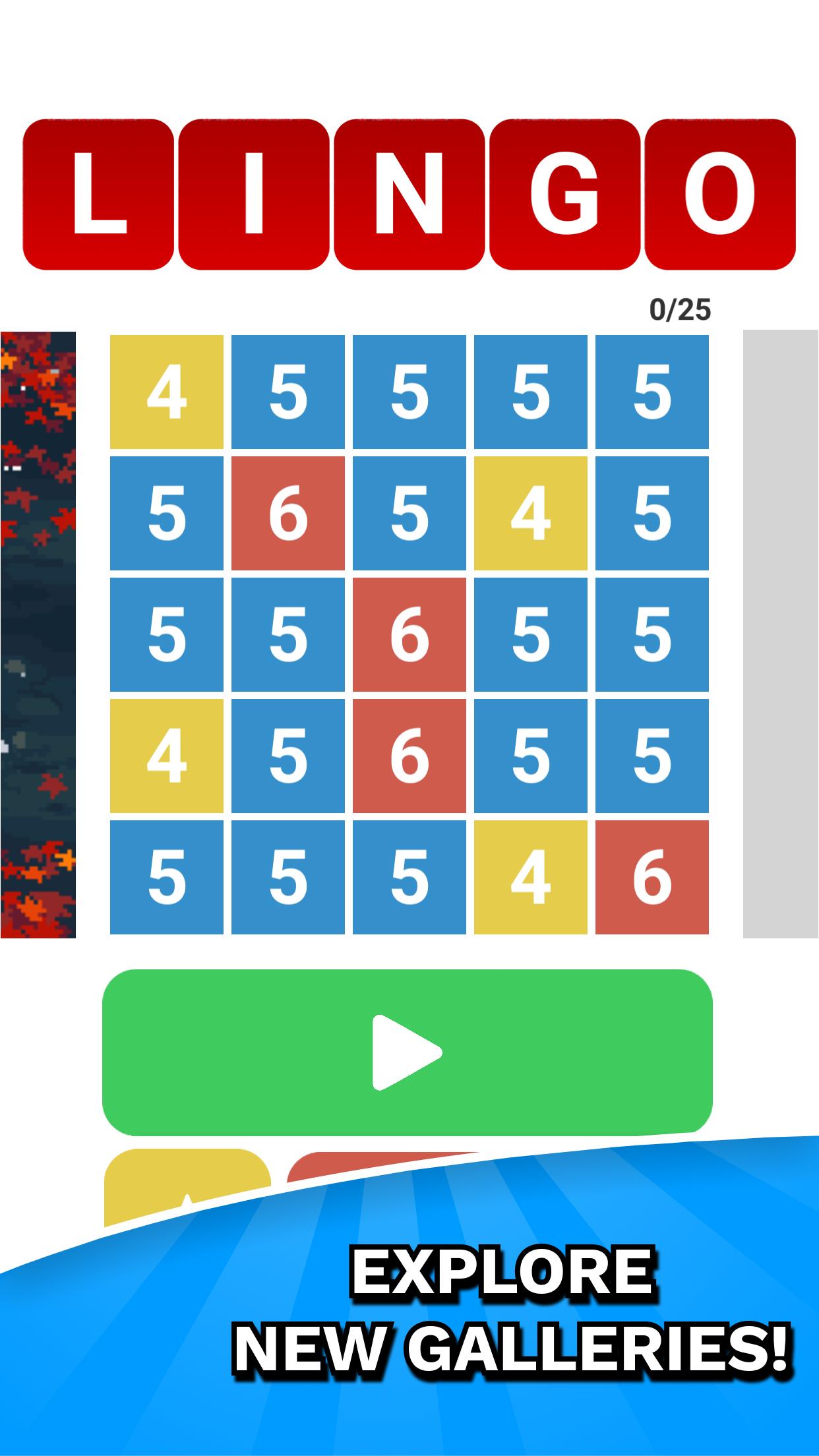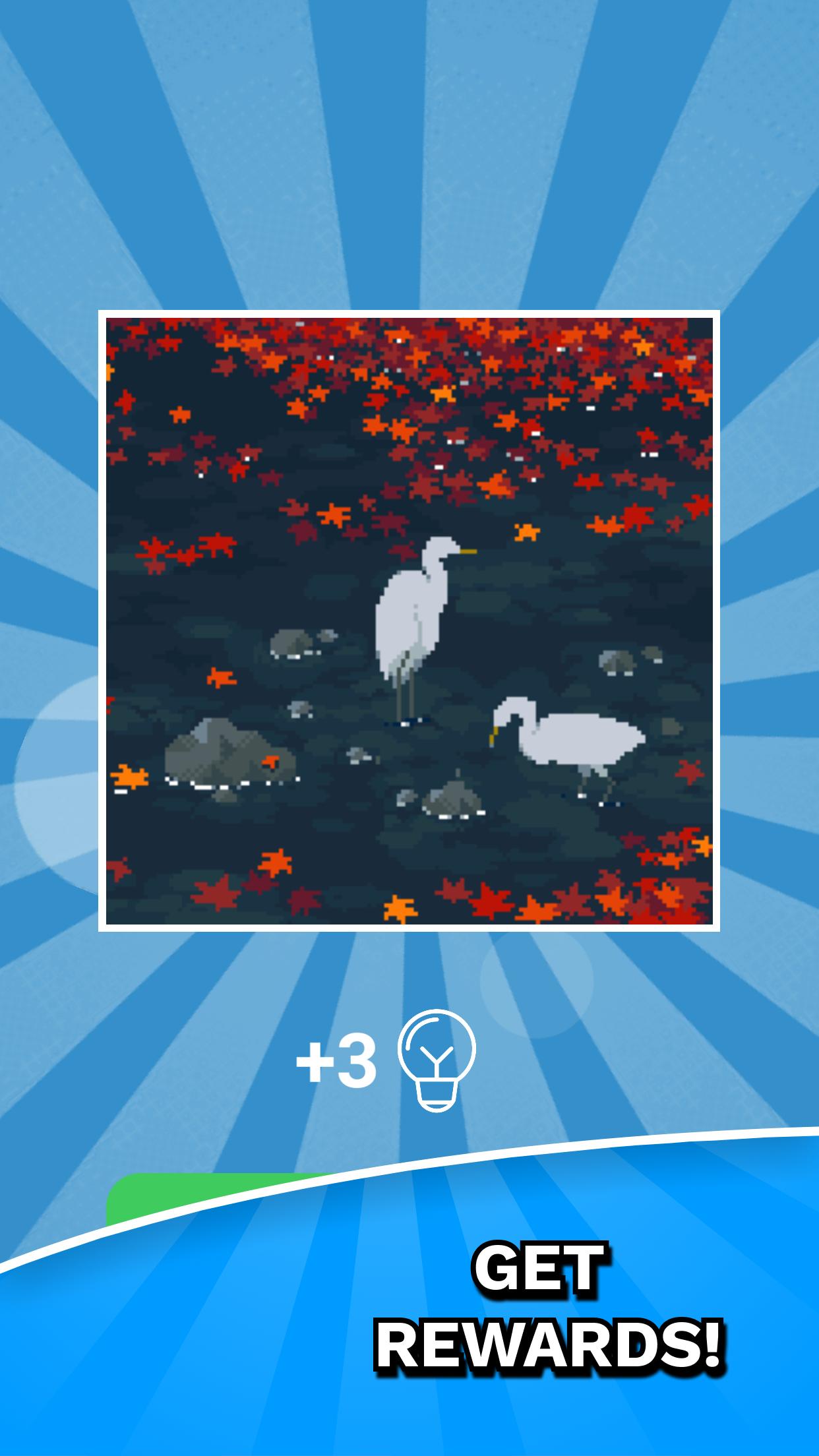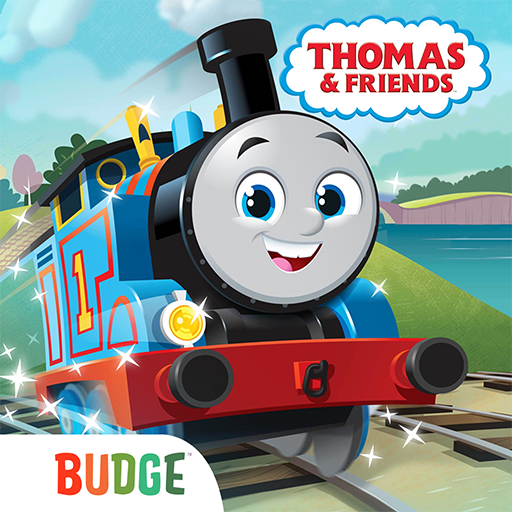This is a classic Lingo word game.
This is a classic word game for the whole family. The objective of the game is to correctly guess the 4-5-6 letter word.
Gameplay:
The game chooses a random 4-5-6 letter word from the dictionary. That letter is displayed on the game board. The player guesses a 4-5-6 letter word that begins with the given letter.
Each letter of the entered word is highlighted on screen in a specific color.
Colors:
The game board will change colors to provide you clues about what the word could be. The meaning of the colors is as follows:
- Green: You have guessed the correct letter in the correct position
- Yellow: You have guessed the correct letter, but in the wrong position
- Gray/Default: The letter you guessed is not part of the secret word
If you get stuck on a guessed word - you can use a hint. By default, when starting the game you have 3 hints. You can buy hints in the application. In addition, if possible, you can watch the ad. After watching the advertisement, you will receive hints and you can continue playing.
You can play in English, French, Dutch and Turkish.
You can change the language of the game at any time by pressing the language button from the settings menu.
Improve your lingo with Lingo Game!
Have fun! and guess as many words as you can.
What's New in the Latest Version 2.7.4
Last updated on Jun 23, 2024
- bug fixes & performance improvements
Lingo: A Game of Word DeductionLingo is a classic word game that challenges players to guess a secret five-letter word within a limited number of attempts. It is a game of deduction and strategy, requiring players to use logic and pattern recognition to narrow down the possibilities.
Gameplay
The game is played between two players. One player chooses a secret five-letter word, while the other player attempts to guess it. The guessing player makes a guess, and the other player provides feedback based on the guess.
Feedback
The feedback provided by the other player indicates the number of correct letters in the guess and their positions within the secret word. There are three possible feedback options:
* Green: The letter is correct and in the correct position.
* Yellow: The letter is correct but in the wrong position.
* Gray: The letter is not in the secret word.
Example
Suppose the secret word is "APPLE" and the player guesses "HOUSE." The feedback would be:
* H: Gray (not in the word)
* O: Yellow (correct letter, wrong position)
* U: Gray (not in the word)
* S: Yellow (correct letter, wrong position)
* E: Green (correct letter, correct position)
Strategy
To succeed in Lingo, players must use strategic guessing. Common strategies include:
* Eliminating Letters: Guessing words that contain letters that are not in the secret word can quickly eliminate incorrect options.
* Finding Common Letters: Identifying letters that are commonly found in five-letter words can increase the chances of making a successful guess.
* Using Feedback: Paying attention to the feedback provided after each guess helps narrow down the possibilities and guide future guesses.
Variations
There are several variations of Lingo, including:
* Wordle: A popular online version with daily puzzles.
* Nerdle: A variation that uses math equations as the secret words.
* Globle: A geography-themed variation where players guess countries based on distance clues.
Conclusion
Lingo is a challenging and engaging word game that tests players' logic and vocabulary skills. Its simple rules and strategic gameplay make it accessible to players of all levels, while its variations offer additional challenges and opportunities for fun.
This is a classic Lingo word game.
This is a classic word game for the whole family. The objective of the game is to correctly guess the 4-5-6 letter word.
Gameplay:
The game chooses a random 4-5-6 letter word from the dictionary. That letter is displayed on the game board. The player guesses a 4-5-6 letter word that begins with the given letter.
Each letter of the entered word is highlighted on screen in a specific color.
Colors:
The game board will change colors to provide you clues about what the word could be. The meaning of the colors is as follows:
- Green: You have guessed the correct letter in the correct position
- Yellow: You have guessed the correct letter, but in the wrong position
- Gray/Default: The letter you guessed is not part of the secret word
If you get stuck on a guessed word - you can use a hint. By default, when starting the game you have 3 hints. You can buy hints in the application. In addition, if possible, you can watch the ad. After watching the advertisement, you will receive hints and you can continue playing.
You can play in English, French, Dutch and Turkish.
You can change the language of the game at any time by pressing the language button from the settings menu.
Improve your lingo with Lingo Game!
Have fun! and guess as many words as you can.
What's New in the Latest Version 2.7.4
Last updated on Jun 23, 2024
- bug fixes & performance improvements
Lingo: A Game of Word DeductionLingo is a classic word game that challenges players to guess a secret five-letter word within a limited number of attempts. It is a game of deduction and strategy, requiring players to use logic and pattern recognition to narrow down the possibilities.
Gameplay
The game is played between two players. One player chooses a secret five-letter word, while the other player attempts to guess it. The guessing player makes a guess, and the other player provides feedback based on the guess.
Feedback
The feedback provided by the other player indicates the number of correct letters in the guess and their positions within the secret word. There are three possible feedback options:
* Green: The letter is correct and in the correct position.
* Yellow: The letter is correct but in the wrong position.
* Gray: The letter is not in the secret word.
Example
Suppose the secret word is "APPLE" and the player guesses "HOUSE." The feedback would be:
* H: Gray (not in the word)
* O: Yellow (correct letter, wrong position)
* U: Gray (not in the word)
* S: Yellow (correct letter, wrong position)
* E: Green (correct letter, correct position)
Strategy
To succeed in Lingo, players must use strategic guessing. Common strategies include:
* Eliminating Letters: Guessing words that contain letters that are not in the secret word can quickly eliminate incorrect options.
* Finding Common Letters: Identifying letters that are commonly found in five-letter words can increase the chances of making a successful guess.
* Using Feedback: Paying attention to the feedback provided after each guess helps narrow down the possibilities and guide future guesses.
Variations
There are several variations of Lingo, including:
* Wordle: A popular online version with daily puzzles.
* Nerdle: A variation that uses math equations as the secret words.
* Globle: A geography-themed variation where players guess countries based on distance clues.
Conclusion
Lingo is a challenging and engaging word game that tests players' logic and vocabulary skills. Its simple rules and strategic gameplay make it accessible to players of all levels, while its variations offer additional challenges and opportunities for fun.



